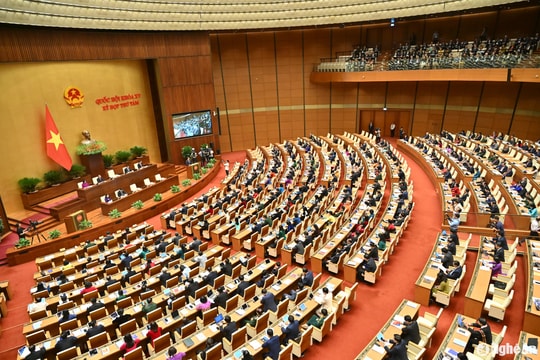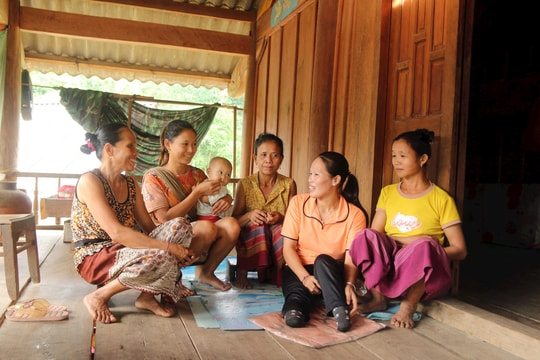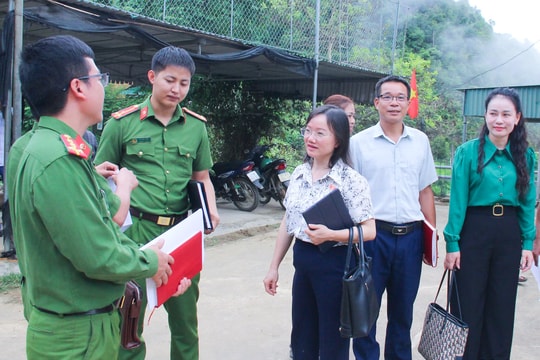'Fetal watch team' awaits new regulations in the Law on Prevention and Control of Human Trafficking
Because there are no specific regulations, it is impossible to handle people who sell fetuses. For more than 5 years, in the hot spot of Huu Kiem (Ky Son, Nghe An), there has been a special working group, called "Fetal Watch Group". They believe that adding regulations prohibiting the sale of fetuses to the Law on Prevention and Control of Human Trafficking is necessary.
Efforts to prevent the sale of fetuses
These days, the cadres and people of Huu Kiem commune (Ky Son) are closely following the 8th session of the 15th National Assembly. Because this session is discussing an issue directly related to the government and the people here. That is the opinion of the National Assembly delegates on the new regulations inDraft Law on Prevention and Combat of Human Trafficking, including new regulations on the buying and selling of fetuses.
“Everyone here is following this very closely. We really hope this regulation will be issued soon,” said Mr. La Van Ha - Chairman of the People’s Committee of Huu Kiem Commune.
Huu Kiem commune is the hot spot of the problem.buying and selling fetuses,The peak was in 2018 and 2019. Especially in villages with a large population of Khmu ethnic people such as Dinh Son 1 and Dinh Son 2. These are also the most difficult villages in the commune. At the end of 2018, there were dozens of pregnant women who were lured by human trafficking rings to China to give birth and then sell their children. Each newborn baby was sold for 40 - 80 million VND. However, because there are no specific regulations on "whether a fetus is human or not human", the act of selling fetuses by these peoplecannot be processed.
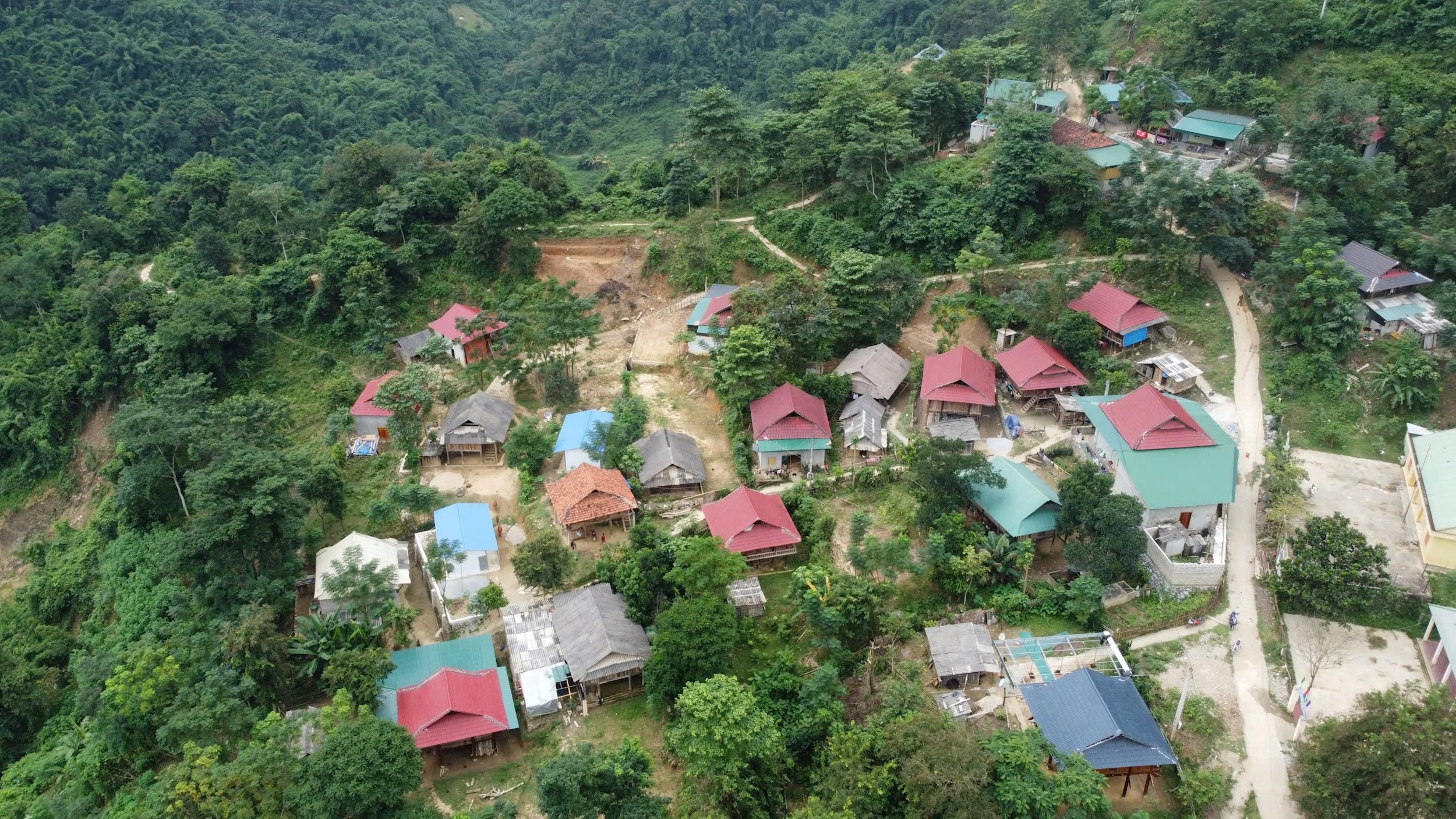
To prevent this early, since the beginning of 2019, the local government has had to establish a "Team to prevent and combat the sale of fetuses and human trafficking", also known by the short name: "Fetus Watch Team". According to Mr. La Van Ha - Chairman of the People's Committee of Huu Kiem commune, the team has about 10 members, including leaders of the People's Committee and forces such as the police, military, organizations, unions, especially village chiefs.
The team’s job is to regularly campaign and propagate to prevent human trafficking in general and fetal trafficking in particular. Specifically, they will have to grasp the situation, make a list of pregnant women in the area to monitor, and ask them to sign a commitment not to sell their children. Every week, team members will go to each house to monitor, propagate and campaign.
Mr. Cut Van Thuan (44 years old) - Head of Dinh Son 2 village said that the job sounds easy, but the working process is also very difficult. This village has nearly 100 Khmu households, most of whom are illiterate, have difficult family circumstances, limited awareness, and are easily lured by bad people.
“At first, we encountered many difficulties. My family was also retaliated by bad guys who slashed many buffaloes and cows grazing in the forest. Many were seriously injured and had to be slaughtered and sold at low prices,” Mr. Thuan said. As a member of the group and the village chief, he was responsible for scouting and gathering information about pregnant women to report to his superiors to create a monitoring list.
That is why Mr. Thuan often has to go to families in the village to ask about the women's pregnancies. "Many people do not understand, seeing me constantly asking about the pregnancy, they think I have feelings for that woman. Some people even get angry, suspecting that their wife is unfaithful and having an affair with the village chief. Even though I explain, many people still react, because they think that I am "worrying about nothing, giving birth and selling the child is their business, they cannot interfere", Mr. Thuan shook his head in disappointment.
According to Mr. Thuan, at first, the "Fetal Watch Team" worked very hard. After making a list of pregnant women, the team would go to each family and ask them to sign a commitment not to leave their place of residence until they gave birth. This met with many reactions from the villagers, especially those who were part of a network that specialized in luring women to China to sell their children for brokerage fees.
"They have very limited awareness. Some people even asked me to pay compensation. They said that my family was in difficult circumstances, and that I could earn 70-80 million VND by selling the fetus, enough to cover my living expenses. Now that I am pregnant and have given birth, I don't know where to get money to raise the baby," Mr. Thuan said. After giving birth, many mothers called to hold him responsible, asking him to buy milk and clothes for the baby because the family had no money. After telling his wife, Mr. Thuan bought gifts to visit the mother.
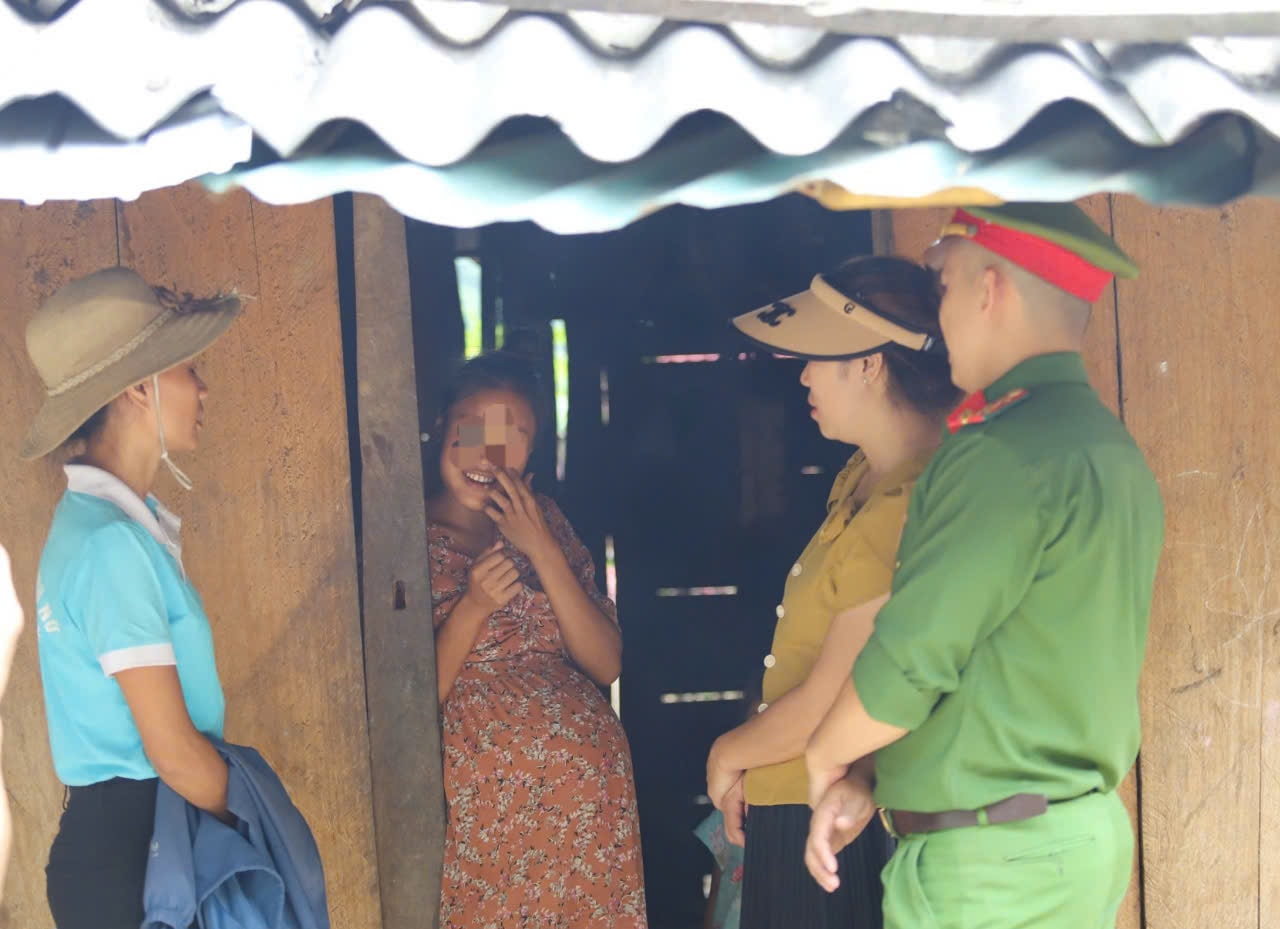
The village chief's dilemma
Chairman of the People's Committee of Huu Kiem Commune, La Van Ha, said that in the past, when they came to propagate, many women said bluntly, "There is nothing to eat at home, we have to go out and earn money." Sometimes the working group had to threaten and be a bit strict for them to listen. To verify the correct case of a pregnant woman, he would specifically record her name, age, and the number of months of pregnancy. When the mother and child are both healthy, he would mark them off the monitoring list. In addition to coordinating with women's cadres, the Youth Union, and village chiefs, the Huu Kiem Commune Police also assigned a number of Khmu cadres to directly go undercover in Dinh Son 1 and Dinh Son 2 villages to gather information and understand the people's thoughts. If they saw any strangers coming to the village to persuade women to sell their fetuses, the cadres would approach them and ask them to leave the area. Twice a week, the working group would go to the pregnant woman's house to check on the situation and ask about her health.
“Because the law does not have specific regulations prohibiting the sale of fetuses, the villages here have included it in the village covenant. Accordingly, the village covenant clearly stipulates the prohibition of this act. Anyone who violates it will be publicly reprimanded in front of all the villagers. At the same time, they will have to pay a fine of 10 million VND,” said Mr. La Van Ha - Chairman of the People's Committee of Huu Kiem commune. He added that since the regulation was included in the village covenant and the "Fetal Watch Team" was established, this problem has decreased significantly. The team has also promptly prevented many cases with signs of stealth and suspicion of being on the way to sell fetuses.
Mr. Ha said that although the "Fetal Watch Team" works very effectively, helping to raise awareness among the people, this is only a temporary solution. In the long term, it is necessary to add a prohibition to the law. Because no matter how closely the team monitors, there will still be loopholes.
"People here often go far away to work. Many people travel with their whole family for a whole year before returning. If there is a case where they intend to sell a fetus, they leave their place of residence to work far away, get pregnant, then go to China to give birth and sell the child, the organization cannot control it. Because when they leave, they do not discover they are pregnant, and when they return to their hometown, they have already given birth. That is why we hope that regulations will be issued to deal with those who sell fetuses so that it can be a deterrent," Mr. Ha added.
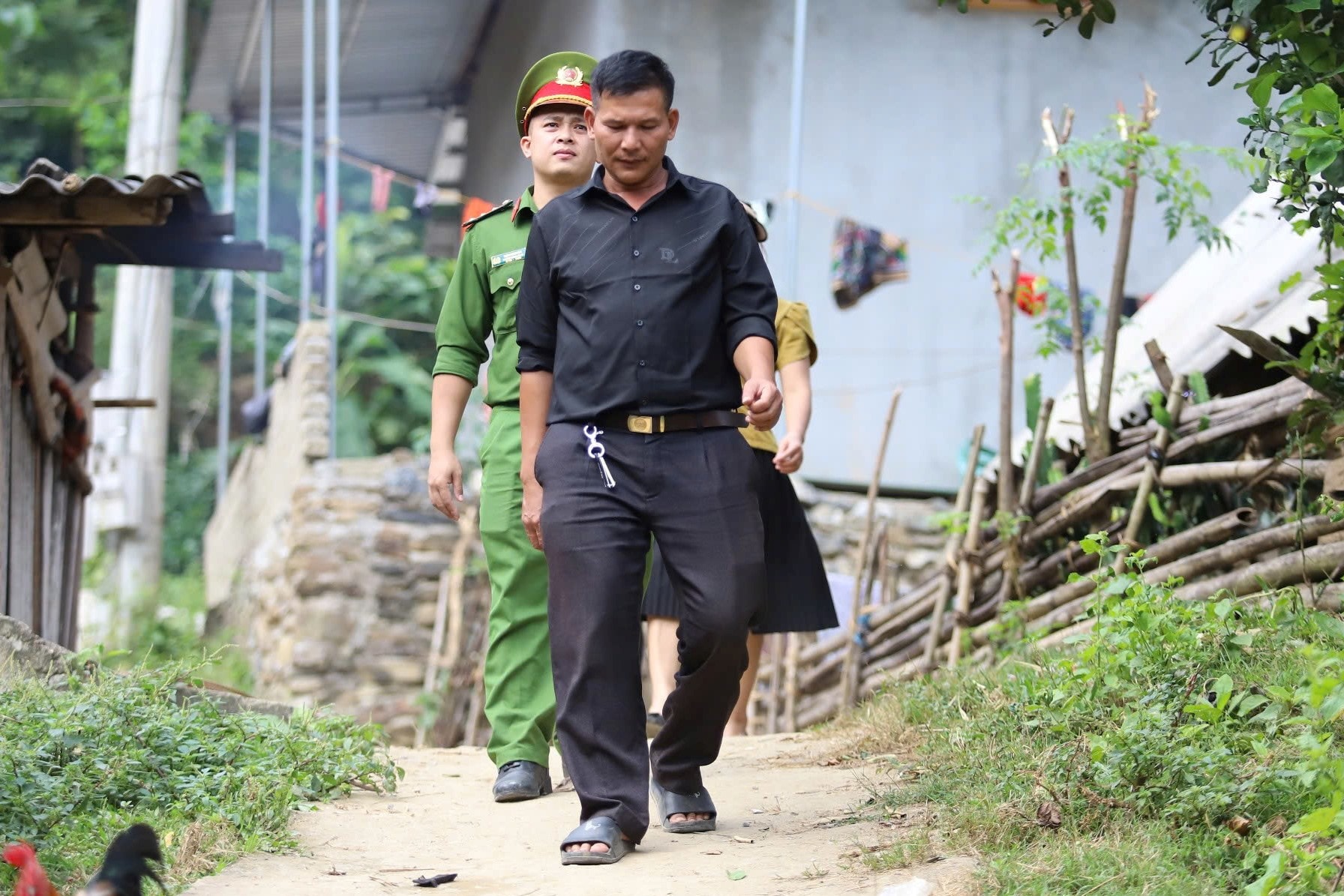
Similarly, Village Chief Cut Van Thuan also hopes that this new regulation will be issued soon. Because then, his work as well as the members of the group will be easier. "Over the years, I have encountered many troubles because of this job," Mr. Thuan said, recounting that many times, when he received news that a pregnant woman was going to the border to meet a partner to sell her fetus abroad, he had to drive his motorbike dozens of kilometers at night, approach her and ask her to return to the village. The pregnant woman initially struggled, and the village chief had to threaten that if she did not comply, he would ask the State to cut the monthly subsidy of 5 kg of rice per person, then they reluctantly listened. So far, Mr. Thuan has prevented 3 pregnant women from escaping at night.
However, many people who failed to cross the border have said bad things about Mr. Thuan who advised them to sell the fetus, then returned to divide the money. Partners who instigated unsuccessful pregnancies have become resentful. Mr. Thuan's family's buffaloes and cows are often attacked, one cow was slashed three times. "I have to take the blame, many people are angry but now they understand, when the baby is born successfully, they come back to thank. My wife sometimes hears gossip, sees her husband is always being bad-mouthed and is not allowed to work anymore, but I tell her that as the village chief, she has to take care of the people," Mr. Thuan said.
The draft Law on Prevention and Combat of Human Trafficking (amended) after being received and revised includes 8 chapters, 65 articles, 1 article less than the draft law submitted to the previous National Assembly, 4 articles removed, 3 articles added, 63 articles revised, and 2 articles kept unchanged. In the discussion section, the majority of delegates agreed with the contents of the draft law. Especially the provisions on handling the act of agreeing to buy and sell human beings while they are still in the womb.
DeputyThai Thi An Chung (Nghe An delegation)said that buying and selling fetuses is a new trick of human trafficking criminals and has only recently appeared. However, in the past time, we have also encountered many difficulties in handling the issue. Criminals often seek out women from ethnic minorities, remote areas to entice them to go abroad to give birth and sell their children for money or exchange them for other objects. This agreement is essentially a premise for buying and selling children, however, handling it is very difficult because it is not yet included in the provisions of the Penal Code.
Therefore, in order to create a legal basis for crime prevention and protection of children's rights, the addition of the provision in Clause 2, Article 3 prohibiting the act of agreeing to buy and sell human beings from the time they are still in the womb in the draft Law at the 8th Session is extremely necessary and meets the requirements of practice. This provision will contribute to the fight against the crime of buying and selling children from the time they are still in the womb and is in accordance with the provisions of the International Convention on the Rights of the Child, which is to protect children from the time they are still in the womb.

.jpg)
